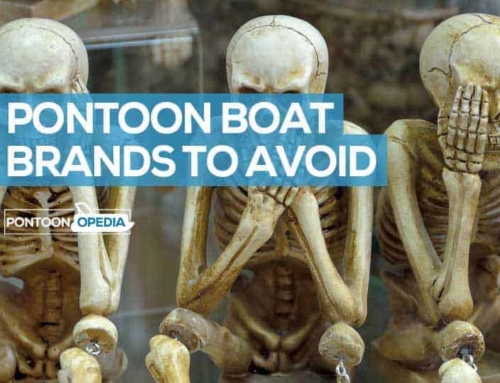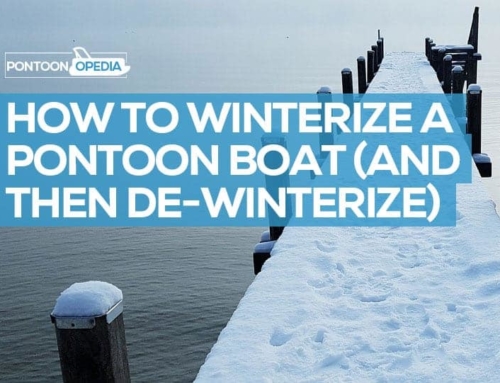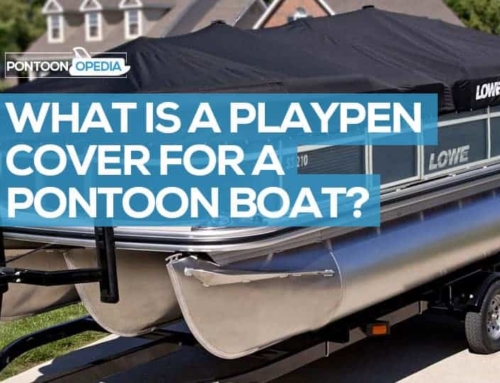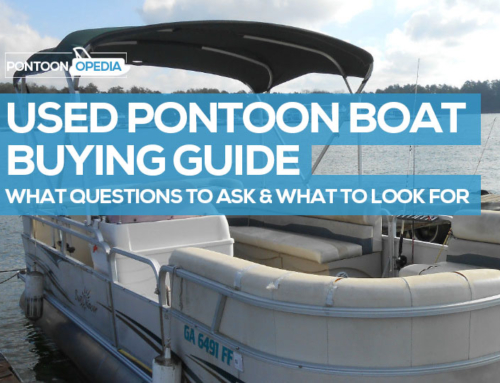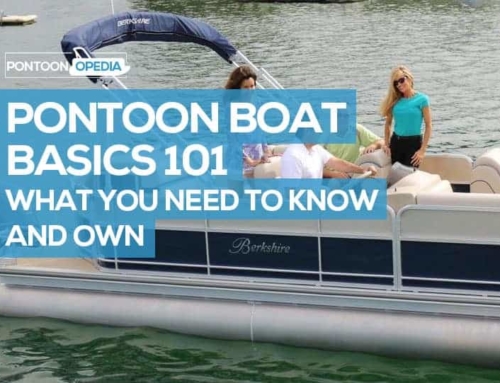Before I go into pontooning, the first thing that I used to think of when hearing the word “anchor” was the typical cartoon style anchor or in more technical terms, a kedge anchor – in other words, like the one you see in the photo above.
That just about sums up how green I was to boating before I got my first pontoon boat back in 2016! I didn’t realise at the time that there were different anchors depending on what you wanted to do, or where your boat was.
Now after a few years, I am far more knowledgeable, and have personally used most of the different pontoon boat anchors available on the market, depending on the conditions I’ve faced, or planned to take my pontoon into.
Handy Hint: If you’re new and a beginner, what this guide will tell you is about the different types of anchors available for pontoon boats. Each of them is better suited to a specific application.
For example, if you drop a 10-ton anchor off your boat you can rest assured that your boat will not move, in fact it won’t even leave the dock as it will become and instant submarine. Obviously 10-ton anchors aren’t suitable for pontoons!
This is why there are different types of pontoon boat anchors, with the modern-day products being designed to either bury, hook or wedge themselves in the mud, sand, vegetation or rock to secure the boat.
This then begs the question, what kind of anchors should you use for your pontoon boat?
Types of Pontoon Anchors – What Should You Choose?
There are far too many types of anchors to list in this article, so I will select the most relevant ones for a pontoon boat. As pontoons are not intended for the ocean this immediately reduces down your choices as to what’s best.
Due to the way that pontoon boats are designed, with the large vertical sides, the wind tends to push it around quite easily, this is why anchor selection is critical.
Here’s the list of the best anchors for a pontoon boat, depending on the conditions, and which ones I believe you should choose to buy and use.
Fluke Anchor: Best for Sand & Gravel Bottoms
This type of anchor is also called a Danforth or a light weight anchor. A fluke anchor should only be used in conditions where the bottom is gravelly or sandy. This type of anchor works by gradually burying itself in the bottom.
It can be dislodged by a sudden change in tide and these types of pontoon anchors are usually very light and therefore don’t rely on sheer weight to anchor the boat. They are not at all suited for areas with rocky bottoms as it will just drag along the bottom endlessly.
This type of anchor has been reported to hold a 24-foot pontoon in rough conditions. Now this obviously depends on the condition of the bottom and level to which the anchor has buried itself.
If these are the types of conditions your pontoon boat will need to anchor into, then I recommend the Fortress brand who sell something called the Guardian anchor (view on Amazon).
It’s made from a high-tensile aluminum magnesium alloy which is corrosion resistant, but far lighter than steel anchors, making them a whole lot easier to use.
The anchor is engineered for fast setting and has a really strong holding power. It’s an affordable and cheap alternative to those heavy, rust-prone steel anchors that you will undoubtedly be more familiar with.
Box Anchor: Best for Muddy & Vegetative Bottoms
A box anchor is a quite strange looking when you first see one but forget how it looks as it’s ideal for muddy and vegetative bottoms so often found in rivers and lakes.
It relies heavily on the length of the rope its attached to, and typically the rope needs to be double the length of the depth of the water it is being placed in. This is to ensure that the correct angle is maintained at all times for maximum hold.
The box anchor for pontoon boats is designed in such a way that it will still work even if the current is prone to quick and rapid changes. It just flips over and digs straight back into the bottom. I also like the fact that the 4 teeth on the anchor can be removed and replaced if they begin to wear out – which they can do after 12 months of heavy use.
To remove the anchor, you must first position your boat directly above the anchor and pull it up.
My recommendation as the best box anchor for your pontoon boat would be this one on Amazon. It’s ideal for pontoons that are between 18 and 30 feet in length.
Grapnel Anchor: Best for Rocky Bottoms
And now for something for use on rocky lake and river bottoms. A grapnel anchor works really well in for coral, stone and heavy weeds as it needs something to hook into unlike those which dig into mud or sand.
Grapnel anchors are very light anchors but shouldn’t be used for heavy anchoring unless there is something for it to grip into. This requirement also makes retrieval more challenging, especially if it gets tangled in a bunch of vegetation.
But if you pontooning in a lake with a rocky bottom, then this is the best anchor for you. The one I have used with great results is the Norestar anchor on Amazon. It folds away for easy storage and is great for smaller boats.
Spade Anchor: Best for Stiff Mud & Pebbles
This anchor is typically used on areas with stiff mud and pebbles. Where the fluke anchor digs into the bottom be means of its design, the spade anchor instead uses its weight to set itself in the bottom.
They are also heavier and bulkier than fluke anchors. However, it is generally easier to handle and store.
I am currently using this one on Amazon.
My Final Thoughts
Knowing and choosing the best pontoon boat anchor for your regular waterways is not always an easy task as there are many factors that will determine whether or not your anchor will work as well as you would want it to.
If you are taking your boat to new waters, it will be worth your time to do some reconnaissance and find a skipper with a similar boat to you and ask what they are using.
It won’t take long for you to find a friendly pontooner, either on a website forum, or in the flesh to quickly confirm the type of pontoon anchor you need.
The last thing you want is for your boat to drift into a difficult situation while you are catching an afternoon snooze – which is why it’s so important to what the best anchor for your pontoon boat is, and the right type that you should buy.






